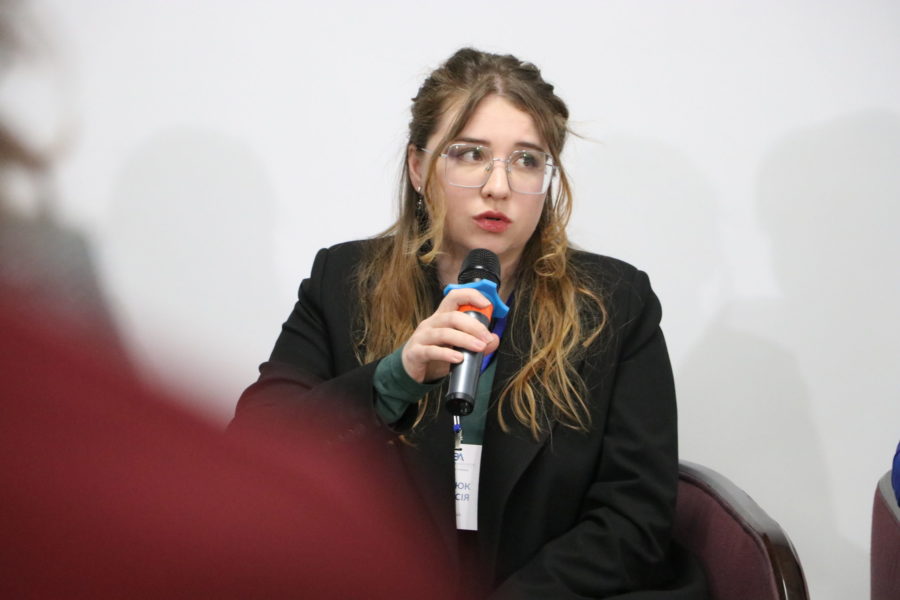Many judgments on collaboration with enemy concern likes, shares on social networks — human rights activist
The largest percentage of cases over collaborationism concerns public expressions, in particular likes and shares of posts on social networks. Currently, out of 353 court judgments on public denial of the war, 148 concern specifically activity on social networks (mainly banned Odnoklassniki and Vkontakte).
 Onysiia Syniuk
Onysiia Syniuk Onysiia Syniuk, a legal analyst at Human Rights Centre ZMINA, said this during the discussion “Freedom of expression and Internet freedom in the world and Ukraine: trends, challenges, needs” on December 7.
Also, according to Syniuk, in 53 of these 148 cases, an examination was conducted, that is, an analysis of these statements, the results of which are taken into account by the court when delivering a judgment. Moreover, the court does not investigate them additionally, and the court judgments sometimes do not even specify information for the public dissemination of which a person is held accountable. Moreover, there has been only one acquittal in this array of cases.
In addition, the expert notes that the legislation also has collisions when two articles provide for different liability for the same act:
“Apart from legislative issues, this also poses another serious problem: the disproportionality of punishment and unequal application of the law. Part 1 of Art. 111-1 is a misdemeanor punishable by deprivation of the right to hold positions or engage in activities. Article 436-2 is a crime punishable by community service for a term of up to two years to imprisonment for up to five years, or imprisonment for a term of five to eight years for officials.”
Another important problem highlighted by Syniuk is overburdened law enforcement and judicial systems which have to spend resources, in particular, on the analysis of posts on social networks.
Learn more about the Ukrainian practice of punishment for collaborationism in the research by human rights defenders.
If you have found a spelling error, please, notify us by selecting that text and pressing Ctrl+Enter.















